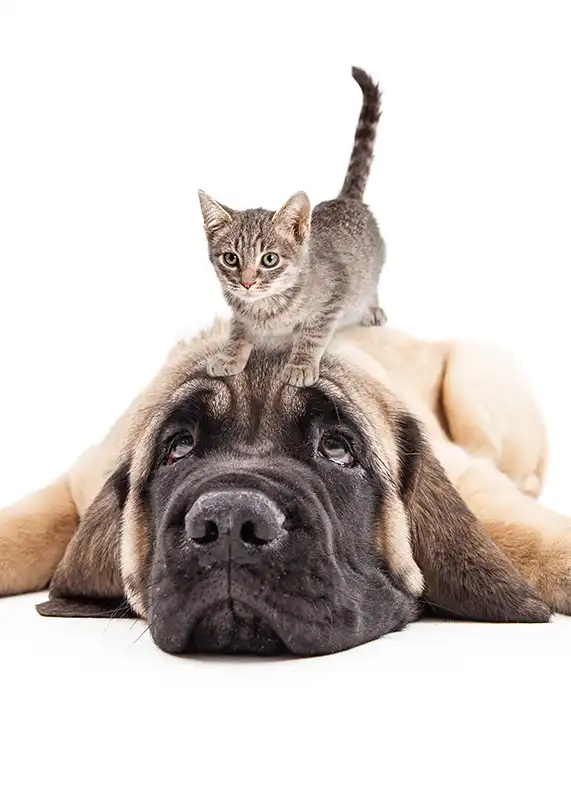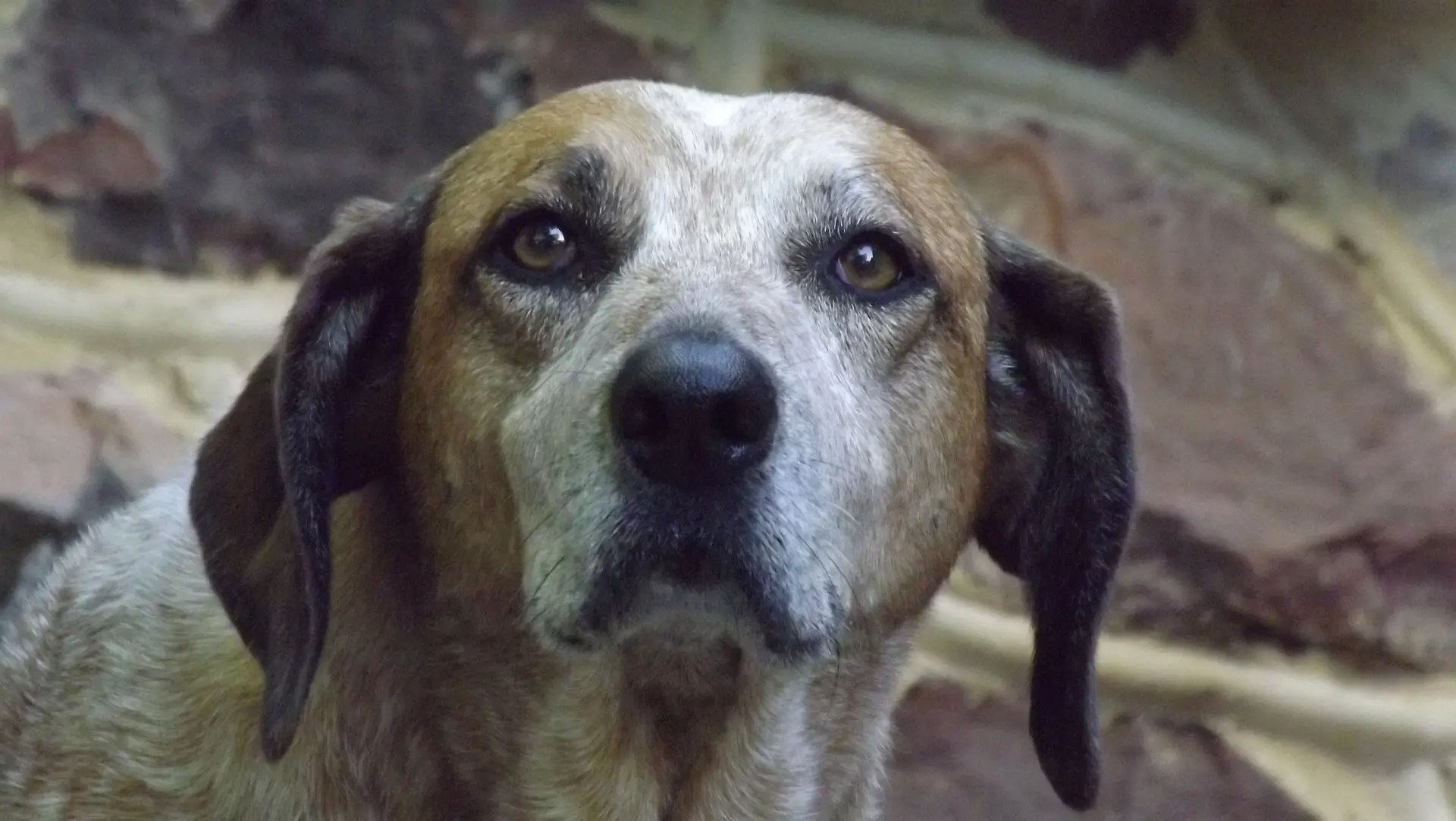Do you enjoy camping? At this time of year, many people are headed to Colorado’s beautiful mountains to enjoy some time in the Great Outdoors. Our canine pals can make great camping buddies. Fido loves exploring new places and conquering brand-new patches of grass! For many of us, there are few things more appealing than sitting around a campfire with Fido and some close companions, just watching the stars and relaxing. However, you’ll have to take some steps to keep your pooch safe on your adventures. Read on as a local Gunnison County vet offers some key tips on camping with dogs.
Is It A Good Idea To Take A Dog Camping?
That really is going to depend on both the dog and your intended location. While young, strong dogs may be up for almost anything, camping isn’t right for every pooch. There’s also a big difference between driving to a cabin and hiking to a secluded campsite. Some pups just aren’t up to long or strenuous hikes. If you’re camping in a very remote area, and your canine pal is a small dog, a senior, a puppy, a nursing mama, or has health issues, you may be better off boarding your pet. Of course, if you’re going ‘glamping’ or staying at a cabin, then your pooch will likely be fine. If you aren’t sure whether to take your pooch or board him, talk to your Gunnison County vet.
You’ll also want to consider how well-trained Fido is. If your pooch tends to race off after every squirrel, you may need to take extra precautions to keep him from running off into the woods.
Where Do Dogs Sleep When Camping?
There are a few options for this. You probably don’t want to haul along a full-sized dog bed, but you can get Fido an inflatable one. While the weather may be nice enough for your pet to sleep outside, we’d recommend bringing him into a tent. You don’t want your canine buddy getting into an altercation with a wild animal or running off while you’re sleeping!
How Do I Control My Dog When Camping?
Camping offers dogs the chance to run and explore, which is both good and bad. The exercise and mental stimulation are both great for Fido. However, there’s also a risk that your pooch may charge off into the woods.
Training is crucial. Make sure your furry pal knows—and obeys—commands like Sit, Stay, and Come. This is important even if you trust your dog not to run off: you may need to get him away from something that could be dangerous, such as a snake, or keep him from getting too close to the fire.
Generally, we would recommend that you err on the side of caution and keep Fido leashed. You can bring a tie line to give him a bit more freedom.
It’s worth noting that retractable leashes are the go-to for many people while hiking and camping. These are good in that they allow dogs more room to explore, but there are a few potential issues with them. The big thing is that sometimes the mechanisms jam. Use a regular leash if you’re going to be in an area that could be dangerous, such as near cliffs or rivers.
What Do I Need To Do To Prepare My Dog For Camping?
Proper preparation will go a long way towards eliminating the risks of a mishap. First and foremost, make sure that your canine pal is up to date on his vaccinations and parasite control. While the core vaccines are required with all dogs, your Gunnison County veterinarian may also recommend a few non-core vaccines, such as the Lepto vaccine.
Aside from that, your pooch should also be microchipped and wearing ID tags. Make sure that the information is correct!
It’s also not a bad idea to get a smart tag or even an air tag for Fido’s collar, which will allow you to track your pet by GPS. These devices do not mitigate the need for tags or microchips, but they do add another layer of security. Just do a bit of research first, as products and options vary. You’ll want to check things like battery life, water resistance, range, and subscription fees. Some work on wi-fi, while others connect to satellites. If you’ll be in a remote spot, a satellite option may be best. Either way, it’s something to consider.
We’d also recommend clipping your pup’s claws before you leave. This will help him get good traction, and prevent painful tears.
What Do I Pack When Camping With Fido?
You’ll need to make a doggy bag for your pooch. We’d recommend making a list, as you don’t want to wait until you’re three miles down a trail to realize you forgot pet food.
Here’s our list:
- Food
- Treats
- Towels
- Medication (if applicable)
- Tie line and stake
- Doggy Lifejacket (If you’ll be near water)
- Bedding (Inflatable beds will work.)
- Dishes (You may want to get collapsable plastic ones)
- Doggy water bottle for hikes
- Waste baggies
- Toys
- Treats
- Spare leash
- Doggy raincoat
- Paw balm
- Pet first-aid kit and brochures
You may also need to bring water along. Try not to let Fido drink from rivers, ponds, or streams: the water may be contaminated. If you are using ‘wild’ water, make sure to boil it or treat it first, just as you would your own.
How Do I Keep My Pup Safe When Camping?
Your canine friend’s safety should always come first and foremost. The biggest dangers are usually the chances of Fido running off or getting into a scrape with a wild animal. However, those aren’t the only dangers.
Here are a few tips for preventing mishaps:
- Never leave Fido unattended, whether on a trail or at a campsite. Keep your pet on a leash at all times.
- Don’t let your dog sniff around places that may be hiding rattlesnakes or other wild critters.
- Be sure to pick up any trash. Campsite garbage may contain a whole slew of things that aren’t safe for dogs, such as tin foil, skewers, bones, can lids, and fat trimmings. (Plus, it can attract bears.)
- Don’t let your furry friend eat plants. Colorado’s beautiful scenery is home to quite a few plants and flowers that are toxic to dogs. These include Death Camas, a highly poisonous plant that grows in meadows and on hillsides; Western Water Hemlock, another toxic plant that grows in wet areas; Lupines; Larkspur; and Locoweed. Foxtail grasses are dangerous as well, not because of toxicity, but because of their sharp seed barbs.
- Check your canine pal for ticks every day. Use a tick puller to carefully remove any you find.
- Be careful with campfires and ashes. Your pooch could singe his paws on hot coals!
- Make sure Fido always has fresh water available.
- If you’re going somewhere you aren’t familiar with, save the information for the closest vet and emergency clinic.
Cleaning Up After The Pooch
Always pick up after your canine friend. Dog feces is actually a major source of water contamination. You may be able to bury your furry friend’s waste, but you’ll need to check local regulations.
Don’t Forget To Take Pictures!
As long as you take proper precautions, camping with your furry pal can be a wonderful experience for you both. Remember to snap some cute shots of your pooch!
Make An Appointment With Your Gunnison County Pet Clinic
Do you have questions about your dog’s health or care? Is your canine pal due for vaccines or parasite control? Please do not hesitate to contact us. As your Gunnison County pet clinic, we are here to help!







